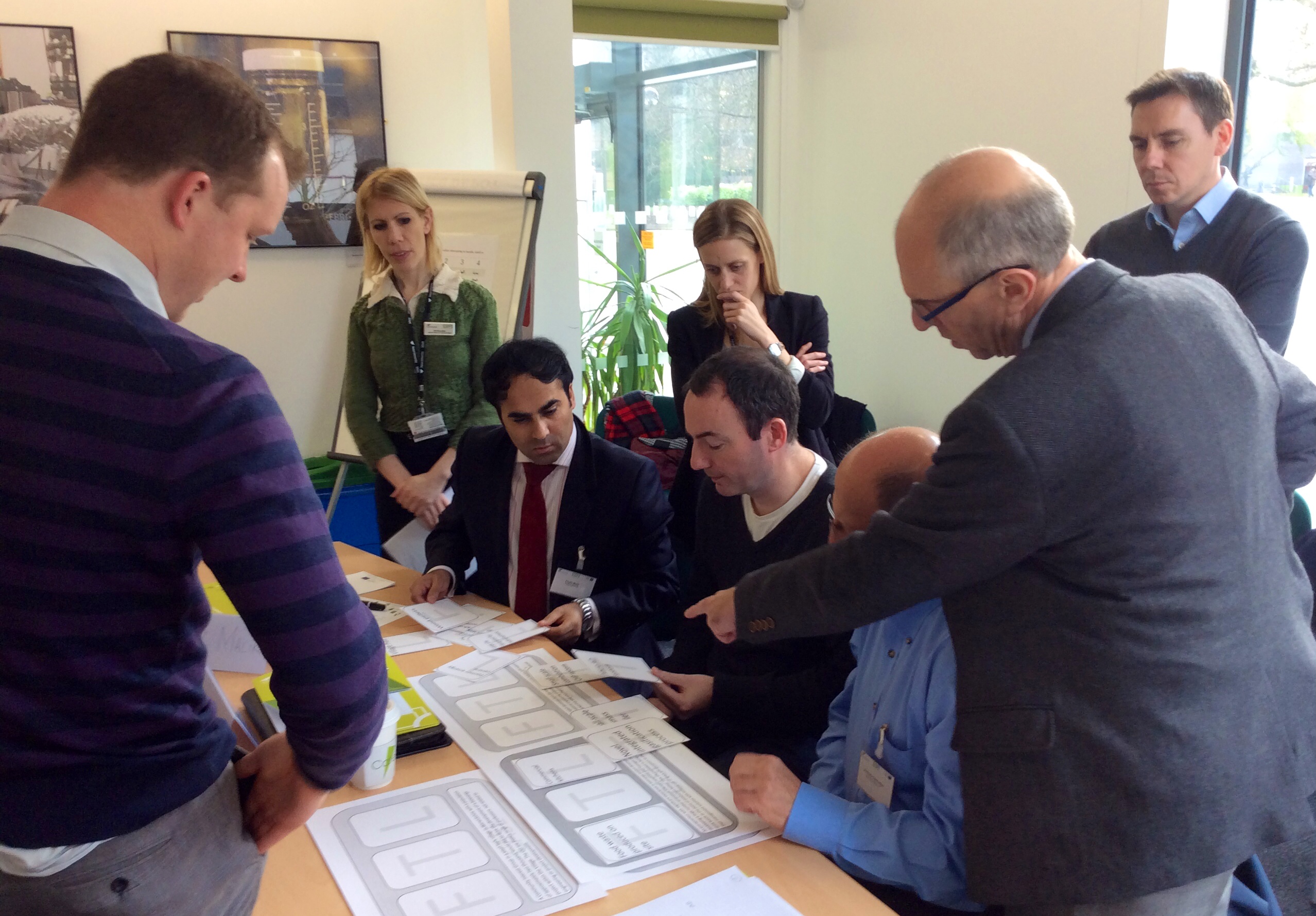West Midlands entrepreneurs gain knowledge to ‘master’ the bioenergy market and make power from waste

The European Bioenergy Research Institute (EBRI) at Aston University has hosted its first ever master class for West Midlands businesses to find out how they can make power – and money – from turning their waste sources into cost-effective energy.
Business leaders from large corporates and SMEs attended the two-day event at EBRI – including many entrepreneurs who are not currently specialising in bioenergy – to discuss ways to exploit the growing potential of bioenergy for their organisations.
The EBRI master class featured presentations from Aston’s world-leading bioenergy researchers as well as external perspectives from Greenwatt Technology and URS Infrastructure and Environment UK. Topics ranged from how to practically structure a bioenergy project and current policy incentives to support developments, to gaining planning permission and the application of technologies and different feedstocks in generating heat and power.
“The UK has the biggest way to go of all EU member states in order to meet the 15% renewable energy target by 2020 – we are currently at 4%,” said EBRI’s Business Development Manager Tom Anderson. “Recent statistics also show that the National Grid has just 4% spare electricity capacity compared with 17% in 2011. These are worrying figures, which is why we need to be looking at increasing the provision of energy from renewable sources. Bioenergy should not be compared to solar, wind or tidal power – the more commonly known forms of renewable energy – in the middle of the night, when hospitals need power, it’s bioenergy that can do the job. EBRI’s master class has been designed to open up businesses’ eyes to the application and opportunities of bioenergy.”
15 delegates attended the first free master class, supported by the European Regional Development Fund (ERDF), and the session was met with firm approval.
Michael Paul, director of Smart Strategy Associates, said: “The knowledge I’ve acquired will not only help me in advising our clients about its viability in realistic business planning but will directly support overseas developments we are undertaking ourselves. Generally the awareness of bioenergy amongst businesses in the West Midlands is very low – education about its potential is key for businesses.”
Fayaz Malik, director of PLAN Enterprise – experts in management accounting and business consultancy – agreed. “There are not many start-ups or SMEs specialising in bioenergy – and there is a lack of understanding in business about how broad bioenergy is. People tend to think about better known forms of renewable energy like solar, wave and tidal power. Master classes like this one can help to change these perceptions. EBRI’s course will help me advise clients about getting involved in bioenergy projects, both in the UK and internationally.”
Andrew Blissett from start-up company Morning Star Renewable Energy added: “EBRI’s master class has given me the additional knowledge I need to formulate business strategies in the field of bioenergy, and the networking was particularly useful. Aston University is renowned for its extensive research and business development expertise around bioenergy and it’s been great to understand more about support mechanisms going forward.”
A second bioenergy master class is being planned for early 2015 and EBRI has already started a waiting list. To join the bioenergy master class waiting list, please email [email protected].
More advanced – but also free – services are available to help businesses benefit from the required technical, regulatory and economic expertise. Specific research and development services are gasification modelling, pyrolysis testing, biofuels analysis, biofuels upgrading and engine testing; project appraisals, planning advice, technical support and collaborative or contract research are also available. At the heart of EBRI’s testing facilities is a new bioenergy technology developed by its researchers, a Pyroformer™ which generates cost-effective heat and power from multiple waste sources.




